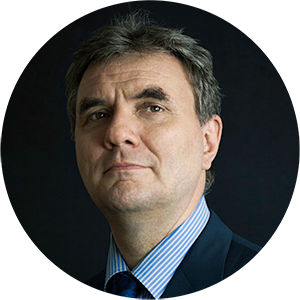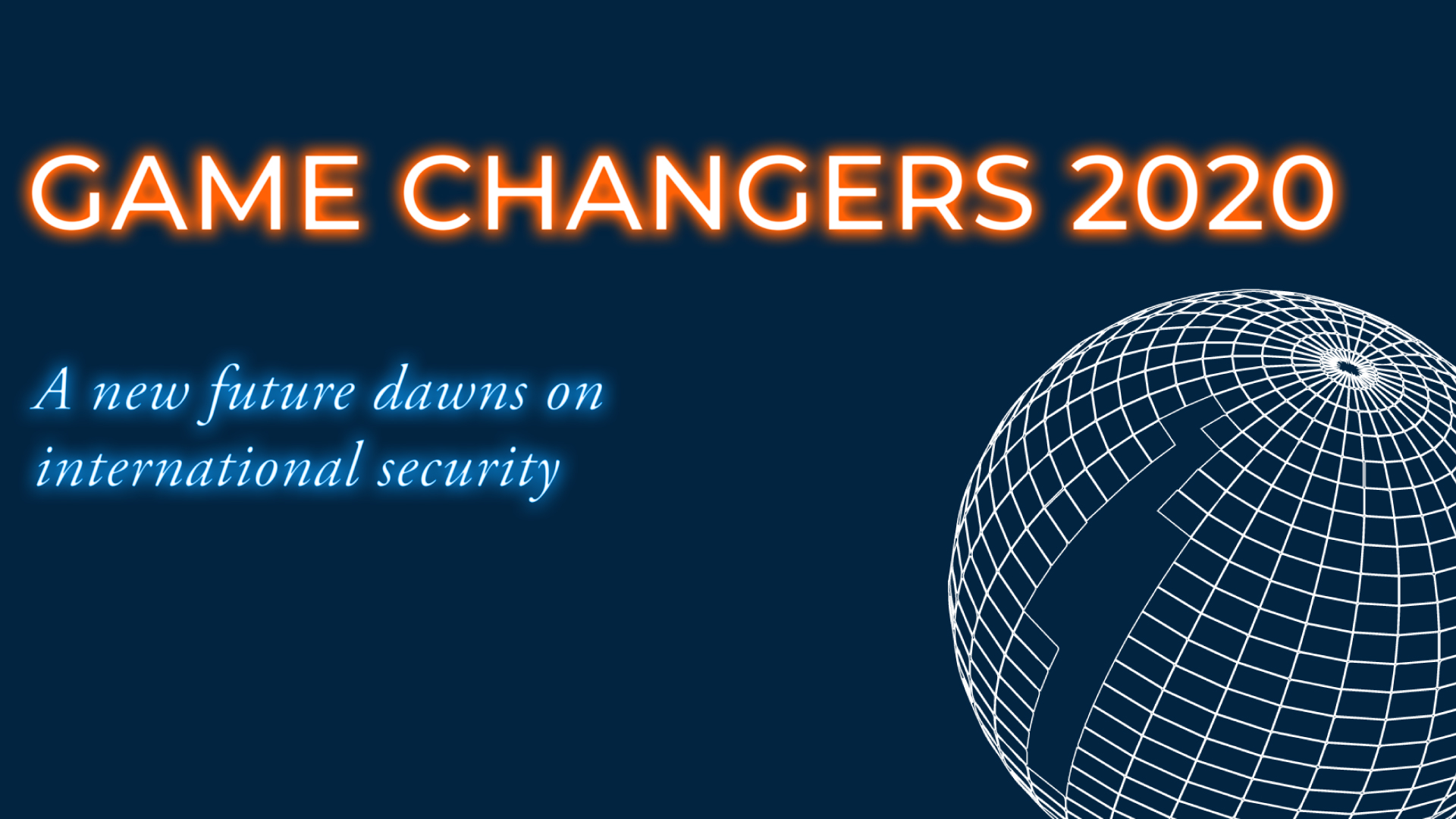
DOSSIER
The Foundation wishes with this dossier,
prepared by 17 distinguished international specialists on 12 pivotal security subjects,
to offer a balanced and diverse overview on topics that will change profoundly
the global strategic dynamics.
These game changers are divided into three categories:
emerging issues, that are recognised as important but need a sharper focus for decision makers;
bridging issues, that are already structured as a gateway to transformation in strategic affairs
and evolving issues, areas that have been extensively developed since the Cold War,
but that still have a great potential in the world’s developments.
| PDF VERSION |
Among all these topics,
the NDCF chose 3 specific subjects to be also discussed in-depth
during our latest conference
GAME CHANGERS 2020. A new future on international security
(December 10 and 11, 2020)

Alessandro Minuto Rizzo President

Alessandro Minuto Rizzo President
Emerging issues

Climate Change and Energy Security
Christian Egenhofer
Climate change and the unfolding energy revolution will increasingly have a profound impact on geopolitics. For most of the 20th century, the focus of energy security has been ‘uninterrupted supply’, but, earlier this century, the Chinese demand shock represented a new, destabilising feature. Energy sectors will be integrated not on types of upstream products, focusing instead on location-specific competitive advantages around electricity, hydrogen or biomass.

AI and the Transatlantic Challenge
Jacopo Scipione
NATO should be a catalyst on the issue, but three roadblocks stand in the way. First, Europe sees AI mainly from an economic point of view, while for the USA it is a strategic matter. Second, for the biggest European allies the data issue represents a “battle of sovereignty”: depending on the USA is a vulnerability. Third, despite China being the major adversary for Washington, the EU and NATO consider Beijing an opportunity and also a challenge.
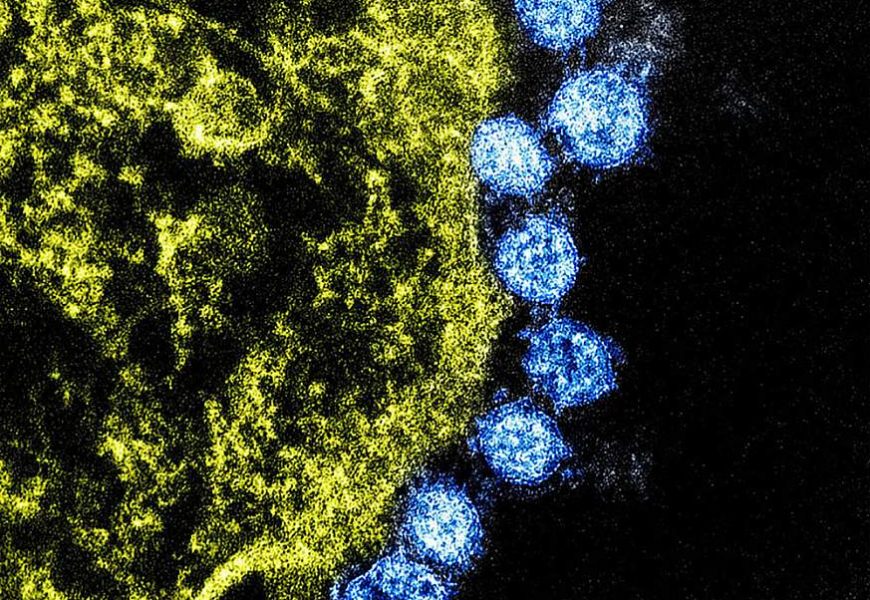
The Pandemic: scenarios and global consequences
Federica Lollo and Alessandro Politi
Pandemics and epidemics confront humanity with existential questions and represent an opportunity to rethink socio-economic and political structures and values. Governments and international organisations depend on science to take life or death choices: an unprecedented level of cooperation and solidarity is required. Unfortunately, the Covid-19 pandemic is a global stressor that has further weakened the fragile stability of the international community. It challenged the effectiveness of democratic systems; it strongly affected globalisation; and may clear the way for an economic depression and major wars.
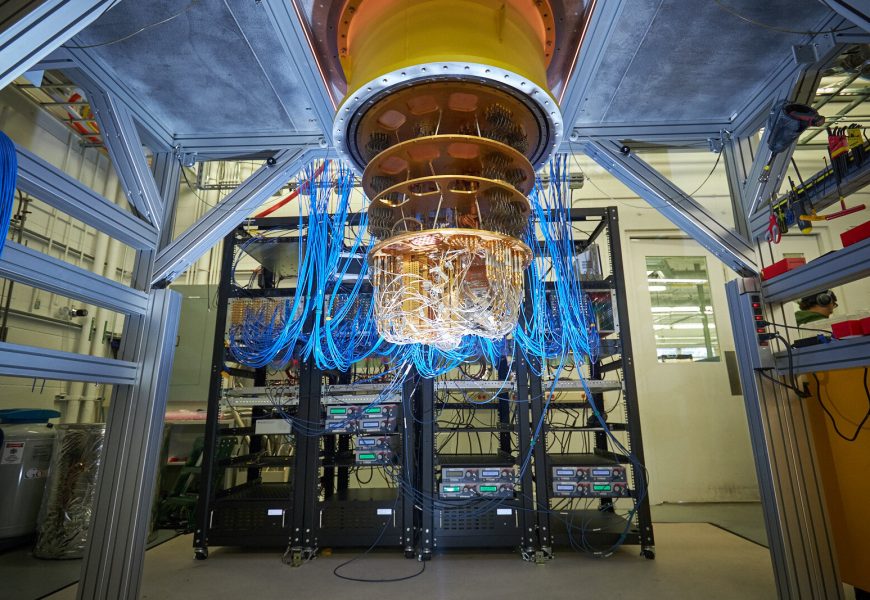
NATO: political choices for disruptive technologies
Benoit d’Aboville
In the next 20 years, four emerging disruptive technologies will be crucial for the Alliance. The proliferation of autonomous and unmanned vehicles will increase vulnerabilities for Allies in asymmetrical combat. The use of space for C4ISR, navigation and defence will remain central to many of NATO’s capabilities. Hypersonic technologies may put into question the existing missile defence programmes and deterrence strategies. Quantum technologies have the potential to revolutionise operations. NATO offers proven consultative mechanisms and a unique network for collaboration on defence and security questions, being a natural platform for collaboration.
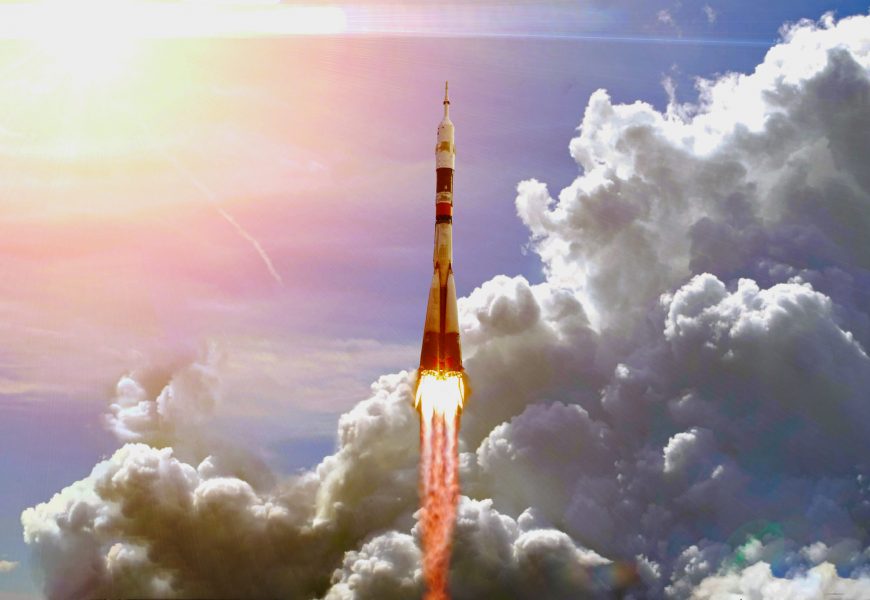
Space: the line between militarisation and weaponisation
Sorin Ducaru
A new technological and arms race is in the offing since major countries are having as military priority the objective of limiting potential hostile operations against satellites, even if in the frame of the 1967 Outer Space Treaty’s principles. As highlighted in the recent NATO space policy, space is indeed becoming an operational military domain, while the creation of Space Commands in different nations indicates an emerging concept of “space deterrence”. On the other hand, in the EU space is recognized as a priority for the development of commercial services but also for its key support to security and defence where the SatCen is involved.

Energy Shifts: the triple transition
Marco Alberti
From an energy perspective, the conventional paradigm that has revolved around fossil fuels for decades is developing into a cleaner, safer model, one accessible to all. The IEA Renewables report (2019) predicts that global renewable energy capacity will grow by 50% in the 2019-24 period. This confirms that deep changes are underway. Multiple innovative technologies converge on digitised power grids, making these infrastructures crucial not only for the energy transition, but also to deliver new global political and economic structures. The old energy hubs will lose their actual leverage.
Bridging issues
Digital-Social Resilience: a shadow game
Alfredo G. A. Valladão
Present-day interconnected societies, dominated by permanent and instant online divisive debates, feed the quick succession of unpredictable political “black swans”, events that upset balances despite being manipulations. Apart from the universalisation of access and permanent digital innovations, “social resilience” needs an enduring participation of old representative institutions in the web of social networks. Only so one can counter authoritarian aggressions and extremist groups.

Cyber Technology Developments and their impact on NATO
Pavel Zuna
In combination with other emerging technologies, Cyber Technologies (CTs) are impacting both on the present and future of security and defence. On the one hand, the complex interactions of CTs with Artificial Intelligence, quantum computing and advanced analytics will improve human decision-making abilities, reducing uncertainty and the “fog of war”. On the other, CTs can be exploited perniciously for propaganda, information and psychological operations, hybrid warfare, and operations of influence.

Hybrid Warfare and NATO
Richard D. Hooker, Jr.
The Alliance is actively committed to addressing the growing threat of hybrid warfare, recognising that member states are the first and best line of defence. Allies should provide themselves with an overall strategy composed by strong cyber defence, national legislation that prohibits foreign funding of political parties, funding for counter-hybrid activities, well-integrated interagency cooperation, public information campaigns and anti-corruption programmes. NATO’s public diplomacy and strategic communication should be synchronized and coordinated effectively.
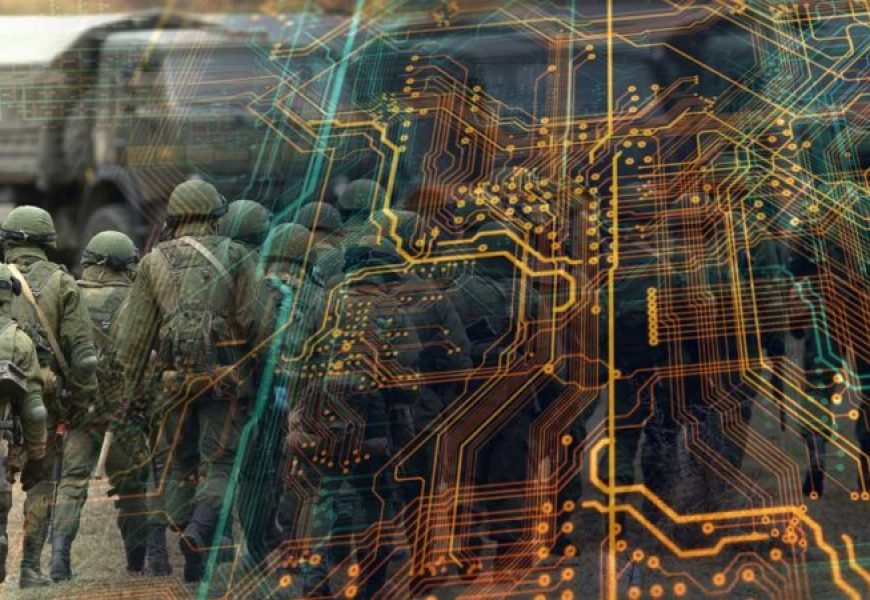
NATO’s Non-Military Responses to Hybrid Threats
Teija Tiilikainen
The inability to respond collectively to hybrid actors’ scaled operations, which remain below the threshold of Article 5, creates serious vulnerabilities for the Alliance and its members. Alongside flexibility, collective actions against hybrid threats require the consolidation of NATO’s legal resilience. The ambitious goal of NATO’s non-military capacity-building against hybrid threats must be to abolish both political and legal hurdles from preventing an efficient common action. This will be also a signal of the Alliance’s cohesion in facing new threats.

Infosphere: the need to reverse a losing trajectory
Jakub Kalenský
The West is losing the information confrontation, while information aggressors (i.e. Russia, China and Iran) are growing in numbers and expanding the area of their disinformation activities. Focussing only on social media platforms and on the victims of the information aggression is inadequate. Western democracies should finally commit themselves seriously in order to stop malicious actors and punish them for their malign activity.

Are Autonomous Weapons also Intelligent?
Antonio Missiroli
The prospect of fully autonomous weapon systems has always raised serious concerns. In the past, international efforts to control the proliferation, production, development or deployment of new military technologies were all driven by four distinct but potentially overlapping rationales: ethics, legality, stability and safety. The possible military use of Artificial Intelligence, especially when related to ‘standoff’ weapons, has raised concerns on all four grounds.
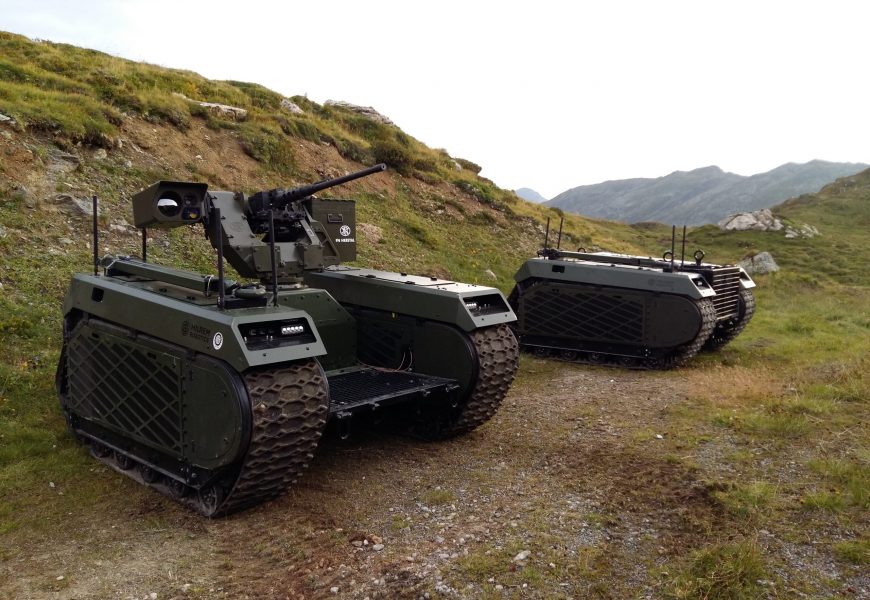
Evolving issues
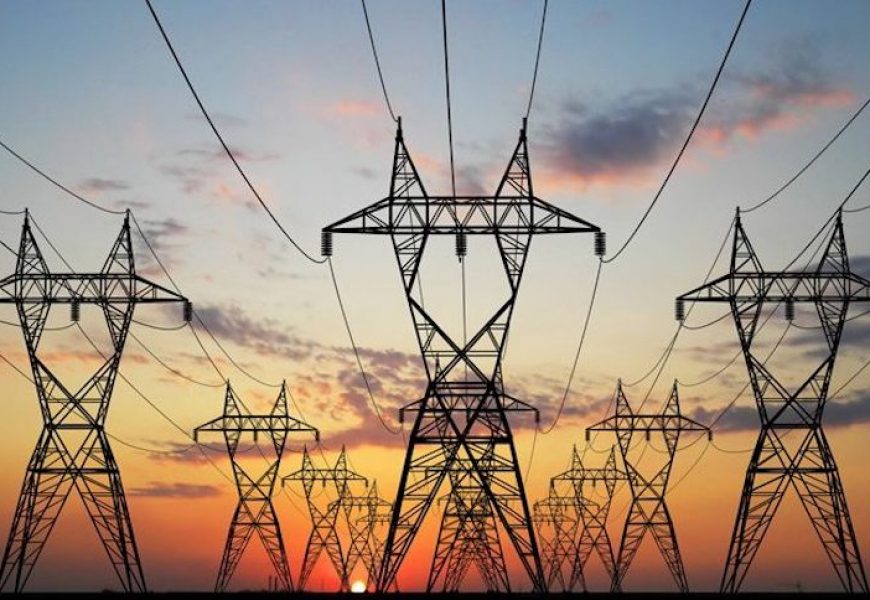
Energy Security
Massimo Nicolazzi
In the age of energy supply abundance, the current market is further penalising the supply side through two different dynamics: the greater importers’ emancipation and conversely the producers’ diminishing freedom due to lower energy rents. The essence of energy security shifts from the security of supply to the protection of infrastructures, in order to secure stable and steady energy flows and to prevent outages deriving from technological or traditional menaces.
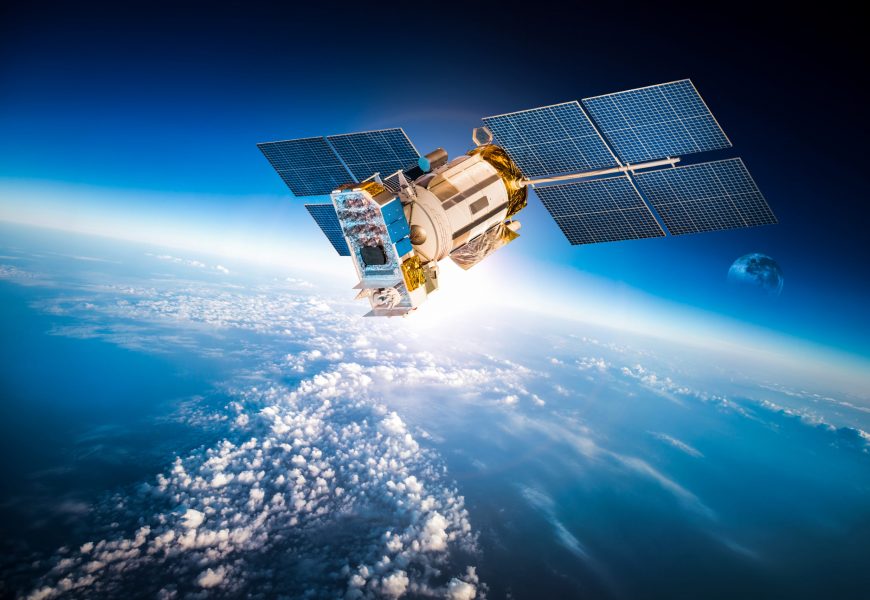
Space is not a High Ground
Bleddyn E. Bowen
It is essential to avoid the intellectual red herring of space as a “high ground”, because this ground is only relevant in high-intensity warfare and will be the purview only of the largest and best-funded military powers. Since the Alliance is not having its own space assets, it needs to think about a better coordination of national military space spending and capabilities. NATO’s primary concern should be to build a more resilient and responsive space infrastructure.
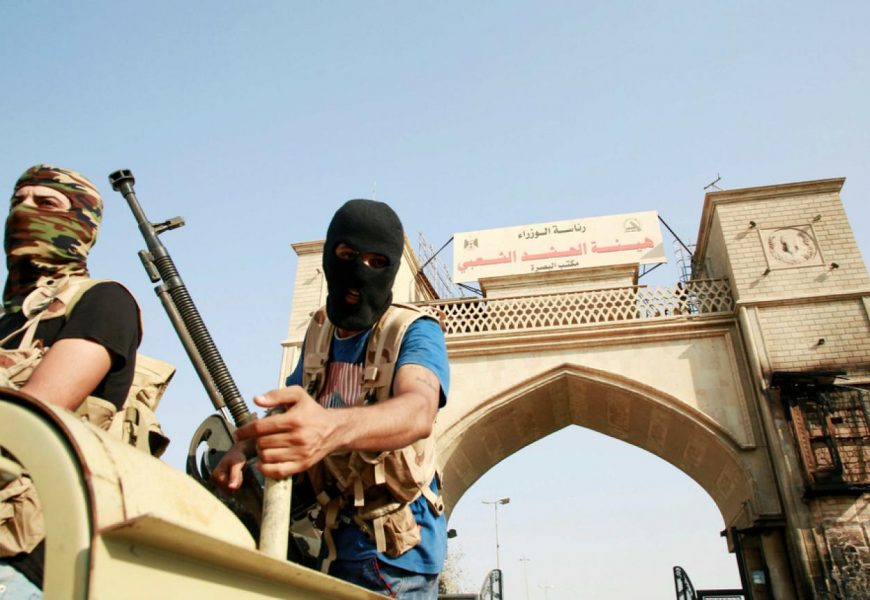
Non-State Actors Empowerment in the Middle East
Rami G. Khouri
1970 is a crucial year: state-building faltered and lost credibility in the region, social conditions began to degrade and the Muslim Brotherhood and similar groups grew impetuously. Since then Non-State Actors provided increasingly for essential personal, communal and political needs. Some NSAs grew strong and sometime shared power with state actors for several reasons: they are anchored in the communities they serve, they are mostly uncorrupted, they speak of social justice and they emphasize equitable socio-economic development at home, and confront aggression from abroad.
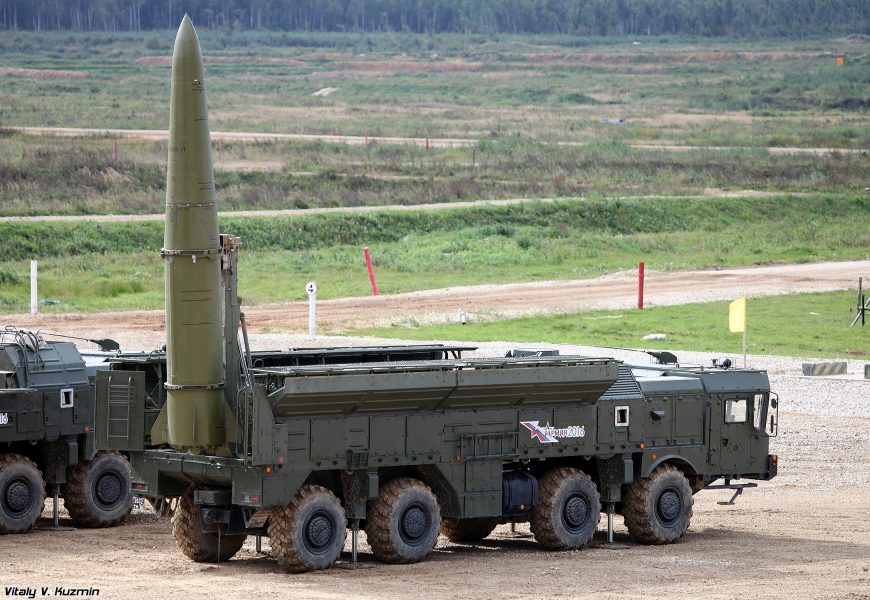
Weapons of Mass Destruction
Eric R. Terzuolo
Although the Alliance is still actively engaged with arms control, non-proliferation and disarmament, there are multiple signals (i.e. the uncertain renewal of the New START Treaty) that the international community is entering a post-arms control and post-non-proliferation era. The USA’s ability to exercise leadership in the Alliance will certainly be key, but NATO should focus on individual countries to promote responsible approaches and to become a relevant influencing body on the issue, although non-proliferation and arms control are not in its writ.
Authors

Christian Egenhofer
Senior Research Fellow and Director,
Energy Climate House,
Centre for European Policy Studies,
Brussels
Senior Research Fellow and Director,
Energy Climate House,
Centre for European Policy Studies,
Brussels

Jacopo Scipione
Contributor,
Opinio Juris – Law and Politics Review
and Geopolitica.info,
Rome
Contributor,
Opinio Juris – Law and Politics Review
and Geopolitica.info,
Rome
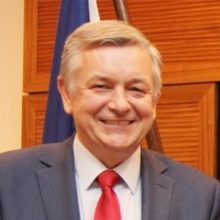
Pavel Zuna
Director,
NATO Science & Technology Organization Collaboration Support Office,
Neuilly sur Seine
Director,
NATO Science & Technology Organization Collaboration Support Office,
Neuilly sur Seine
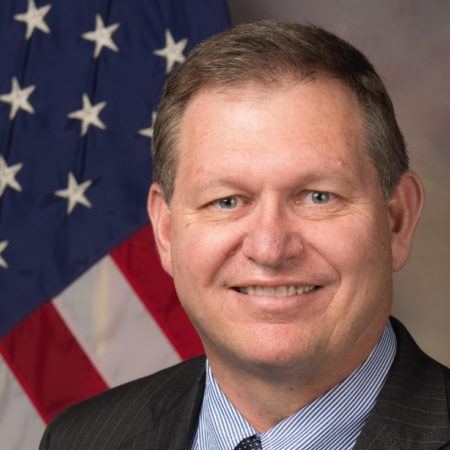
Richard D. Hooker, Jr
Former Professor,
National War College,
Washington D.C.
Former Professor,
National War College,
Washington D.C.
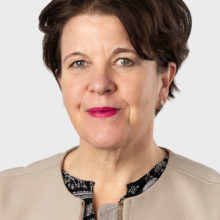
Teija Tiilikainen
Director,
European Centre of Excellence for Countering Hybrid Threats,
Helsinki
Director,
European Centre of Excellence for Countering Hybrid Threats,
Helsinki

Jakub Kalenský
Senior Fellow,
Digital Forensic Research Lab, Atlantic Council,
Washington D.C.
Senior Fellow,
Digital Forensic Research Lab, Atlantic Council,
Washington D.C.
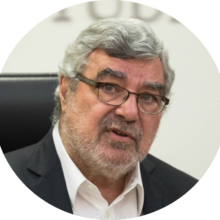
Rami G. Khouri
Senior Fellow,
American University of Beirut,
and Journalist-in-residence,
Beirut
Senior Fellow,
American University of Beirut,
and Journalist-in-residence,
Beirut

Eric R. Terzuolo
Professorial Lecturer,
School of International Service, American University,
Washington D.C.
Professorial Lecturer,
School of International Service, American University,
Washington D.C.


